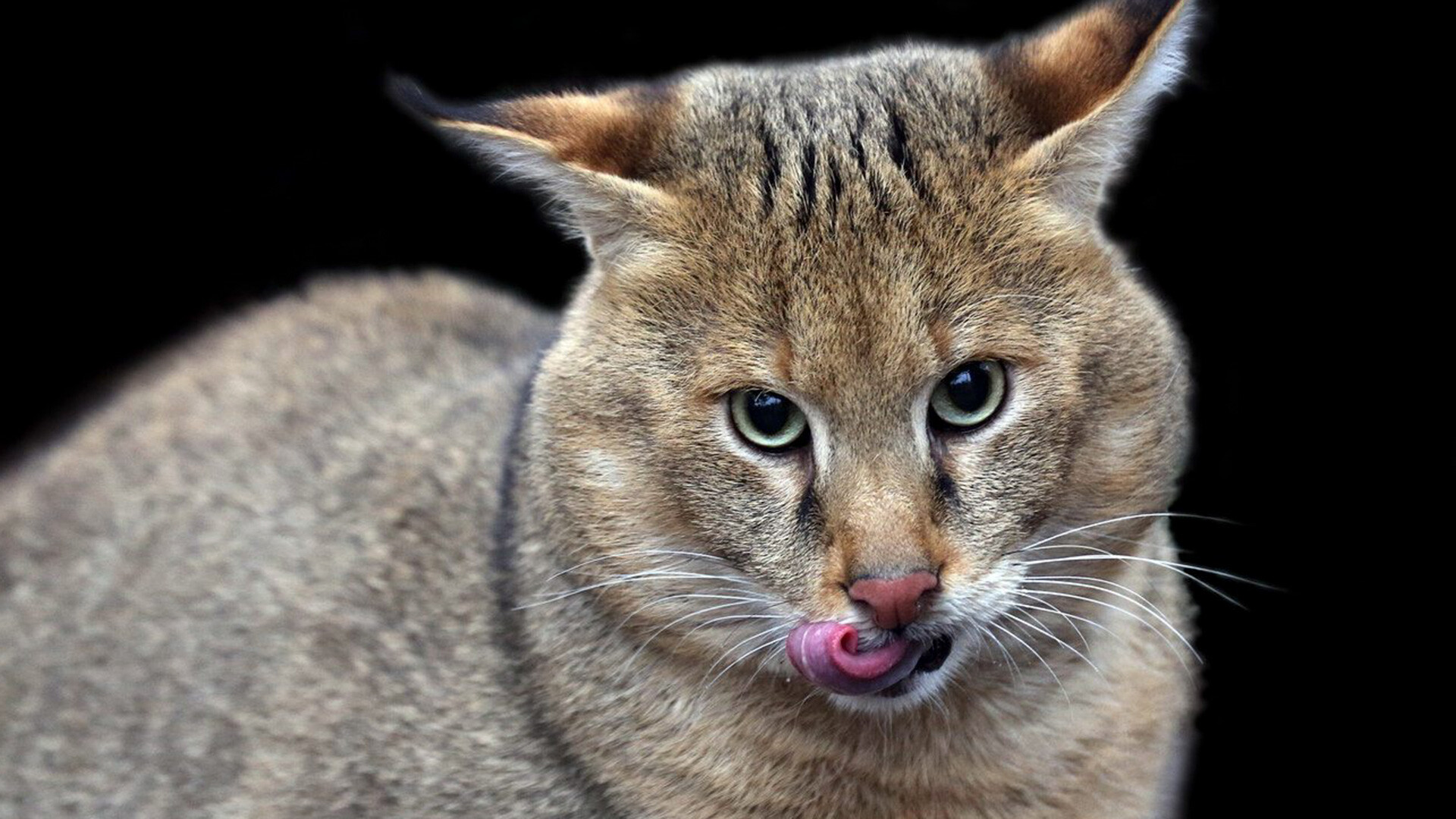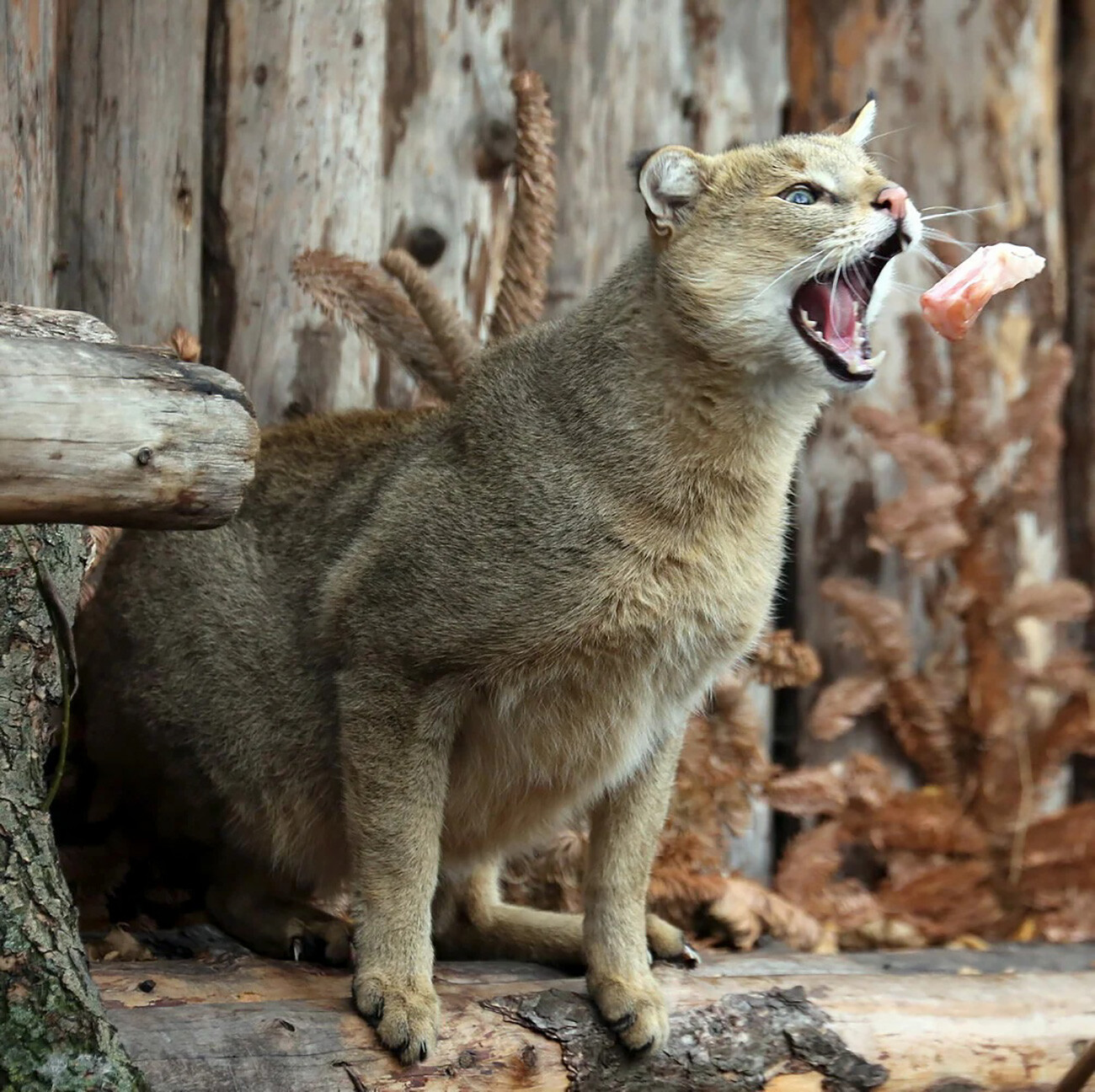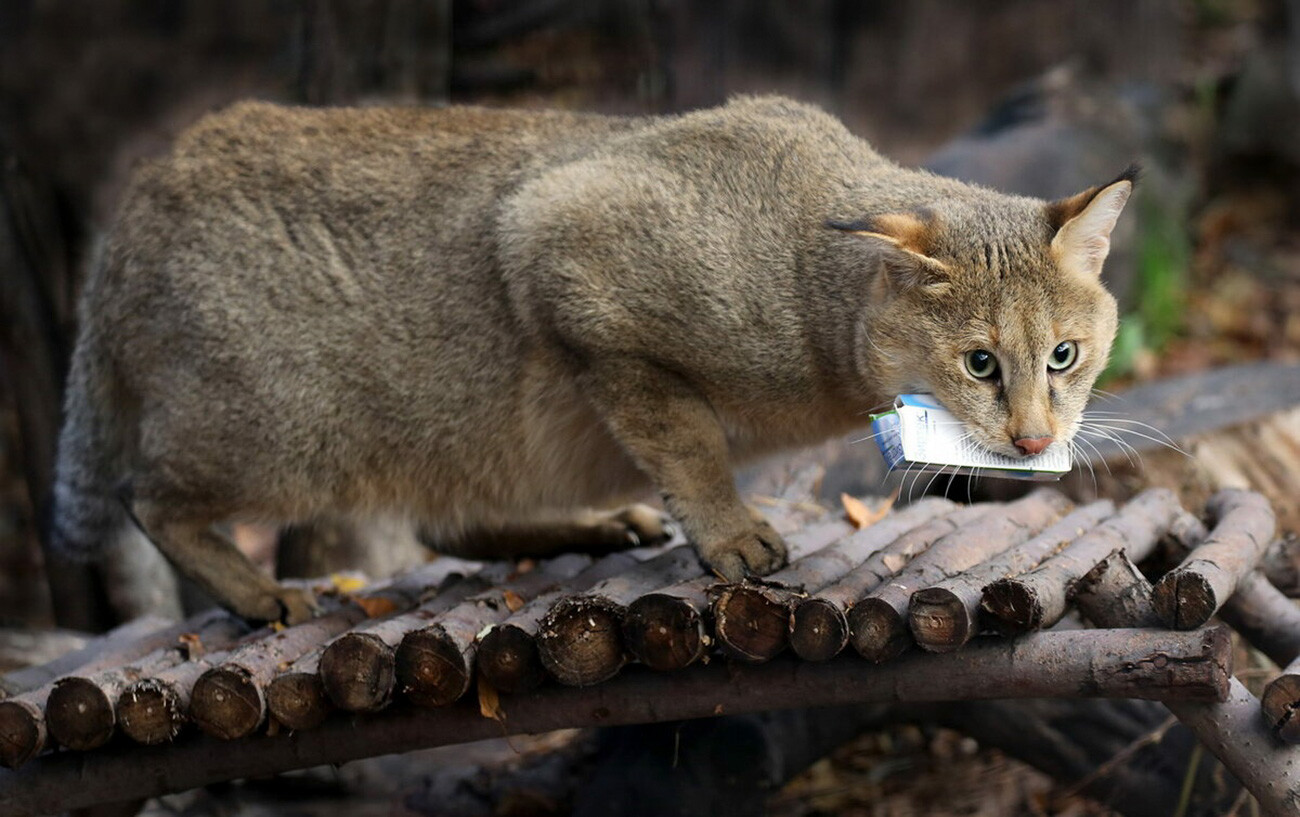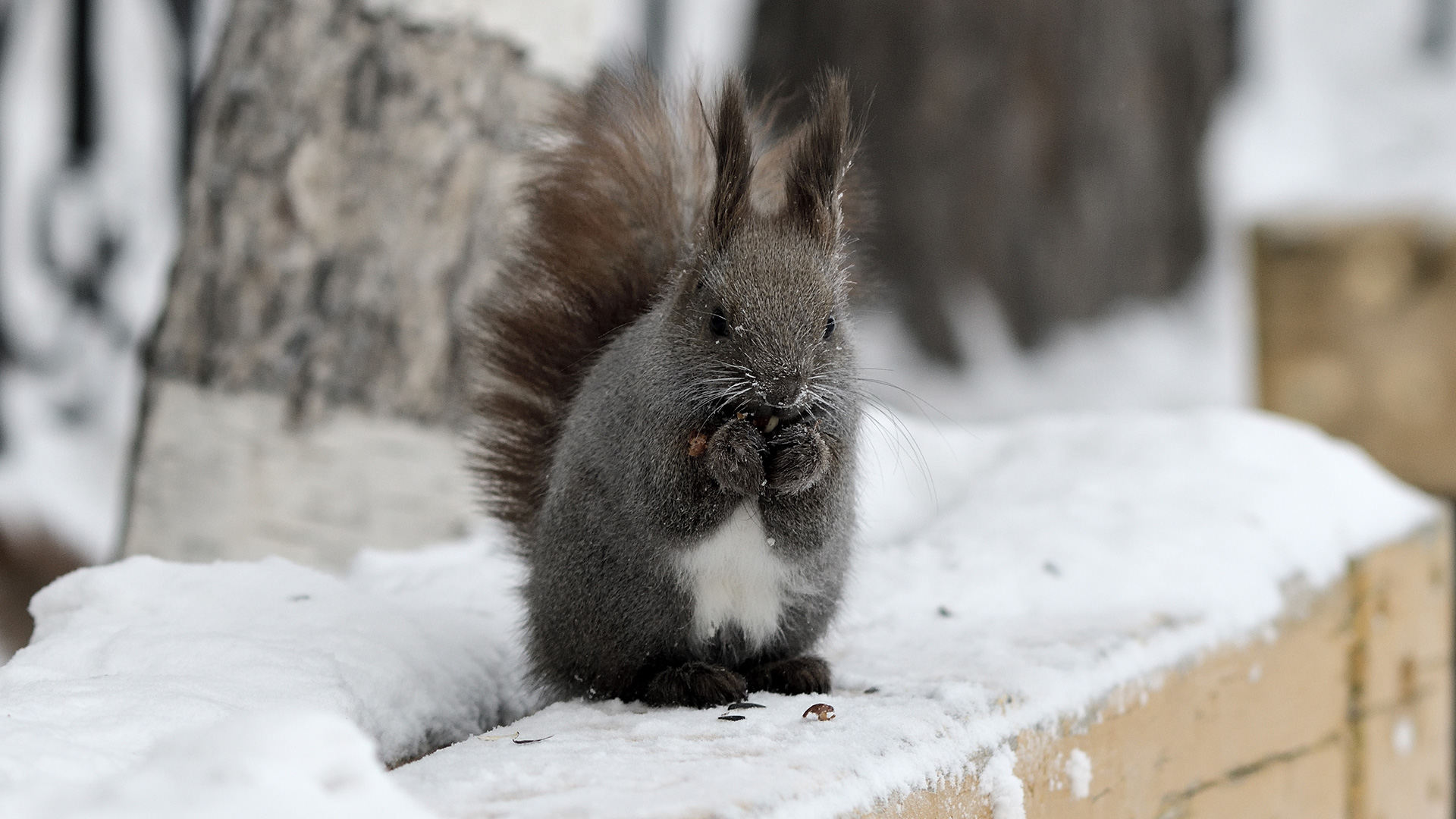
Jungle cat: A savage inhabitant of the Caucasus wild


As a rule, this cat lives in China and Central Asia. In Russia, it lives, for the most part, in Dagestan and Stavropol Territory, choosing flat territories, reed and thicket fields near rivers and swamps and avoiding open spaces and mountains. It is not afraid of snakes and likes to fish. It hunts by ambushing its prey.

The jungle cat differs from domestic cats by its particularly large size - it can grow up to 12 kg. But, its tail is short and it has tufts on its ears, like a lynx. As a kitten, a jungle cat has stripes that disappear with age.

However, the chances of meeting one in the wild are practically zero: it is very secretive and avoids people. Besides, there are only about 500 left (less than Amur tigers!) and, of course, they are listed in the ‘Red Book of Russia’. They suffer from poachers who catch kittens and sell them to exotic lovers. Such cats should never be kept as a pet, as they are wild and need freedom.

It was first found and described in 1776 by naturalist Johann Anton Güldenstädt, who, on behalf of Empress Catherine the Great, went to study the south of Russia. Incidentally, he worked under the scientific supervision of Peter Pallas, who discovered the Pallas's cat (manul) in Siberia.













